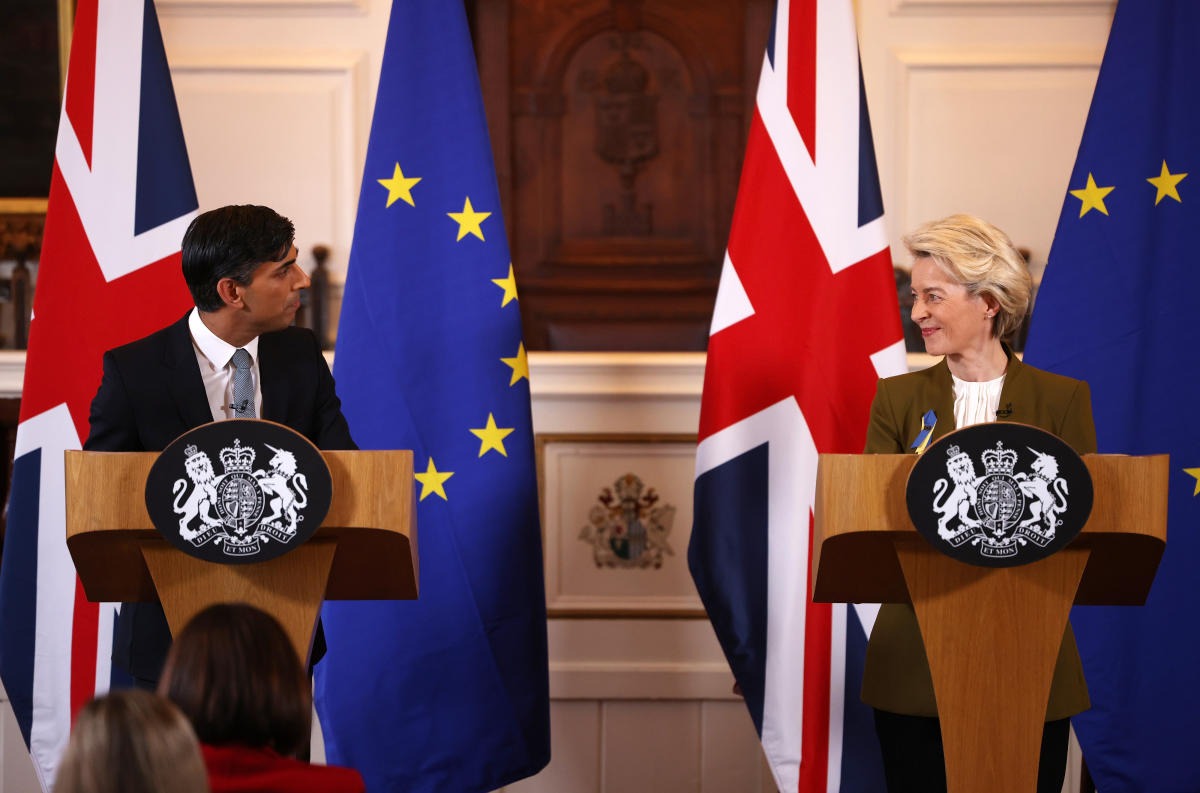The Stormont Assembly witnessed a historic moment as the first-ever motion on extending a new EU law to Northern Ireland was brought to the floor, only to be defeated amidst contentious debate.
The Democratic Unionist Party (DUP) led the charge against the motion, emphasizing concerns over creating what they deemed a “new regulatory border within the United Kingdom.”
Jonathan Buckley, representing the DUP, underscored the party’s stance against introducing a law they perceived as encroaching on the UK’s sovereignty.

However, Sinn Fein criticized the DUP’s efforts, labeling the debate as a “sham fight” and urging the Assembly to focus on attracting new investors to Northern Ireland instead.
Alliance Party MLA Sorcha Eastwood echoed this sentiment, describing the discussion as internal wrangling within the DUP that detracted from more pressing matters.
The motion, which sought to apply EU regulations on geographical indications for specific products to Northern Ireland, failed to secure cross-community consent, primarily due to unionist opposition. This outcome leaves the decision to introduce the new law in Northern Ireland to the UK Government.
While the DUP emphasized concerns about potential repercussions for the UK’s internal integrity, others argued for a pragmatic approach. SDLP’s Matthew O’Toole criticized the DUP’s motives, describing the motion as a “controlled explosion” orchestrated for political gain.

He urged the UK-EU joint committee to consider allowing the law to apply to Northern Ireland, emphasizing its limited impact on trade according to the British Government.
The motion’s defeat underscores the complexity of post-Brexit arrangements in Northern Ireland and highlights ongoing tensions surrounding the implementation of EU regulations within the UK.
As political parties grapple with these issues, the focus remains on finding solutions that balance economic considerations with concerns about sovereignty and cross-community consensus.


